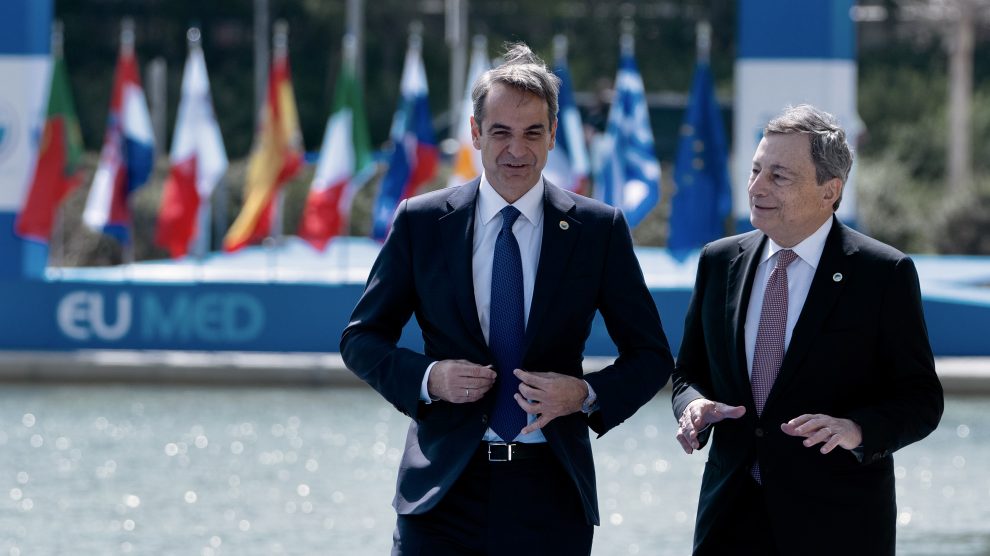Warn the centrists, both genuine and wannabes. It’s quite possible to be a European politician who is moderate, centre-right, pro-European, Atlanticist, and a government leader at the same time.
- Since 2019 Kiriakos Mitsotakis has been Prime Minister of Greece, “the oldest democracy in the world,” as he likes to repeat.
- He just became the first Greek leader to address the US Congress and spoke at Georgetown University on Monday, laying out his political philosophy.
- His political prescription also doubles as a message in a bottle for Italian moderates.
The calm after the populists. A scion of Greek politics, Mr Mitsotakis was elected leader of New Democracy, a conservative party, in 2016. He then managed to break the spell of Alexis Tsipras after four years of leftist populism in power.
- The latter’s political parabola began with the devastating aftermath of the sovereign debt crisis and ended with a strange entente with the troika and the EU establishment that cost him dearly at the ballot box.
- After unseating Mr Tsipras, Mr Mitsotakis established a government that’s more centre than right. And today, he’s touting the value of that placement.
An old story, anew. “Political polarisation was a problem in ancient Greece as well,” said the Greek PM at Georgetown, before explaining that “ancient demagogues” had returned to the helm in Athens seven years ago with “a populist government, without ideological cohesion, that lumped extreme right and left together.”
- Watchers of European politics will have noted that the Tsipras government predated the rise of the Italian populist parties (the League and the Five Star Movement) and their government in 2018.
- Mr Mitsotakis described their MO – “offering easy solutions to complicated problems, and in this way complicating them more than necessary” – and struck a chord Italian onlookers know all too well.
But how did it work? When Mr Mitsotakis triumphed in the general election, many branded the election of a conservative PM as a return to the status quo after a populist hangover of sorts. But he rejects that notion.
- He believes it’s necessary “not live in our little intellectual elite bubble. The grievances that fuel the resentment of societies are very real. We cannot afford to just ignore them or not to assign the proper degree of attention to them.”
- “As long as we don’t address the underlying root causes [such as inequality and cost of living] that lead to this resentment and toxicity of the public debate, we will have failed to have addressed what is causing this intensity […] in the first place.”
Pragmatism is his signature. The Greek PM is reminiscent of Mario Draghi in training and inclination – having attended Anglo-Saxon universities and worked at McKinsey – and he’s not afraid of entering the political fray.
- “There is a space for political moderation, pragmatism, a less ideological debate. I was elected with a centre-right party, and I do not ignore its values; on the contrary. But I believe even more in concrete solutions to problems, in personal talents, and that is also why I have given place in my government to talented people from outside the party.”
This also entails abiding by the rules of the democratic game and not stirring the cauldron of misinformation for a handful of extra votes. That’s a clear message to Trump-style politicians in Italy and elsewhere:
- He believes it’s indeed possible to govern from the centre, as he’s doing. Aside from in-party extremists, he said in Georgetown, the majority of people do not want to follow an aggressive and polarising debate.





